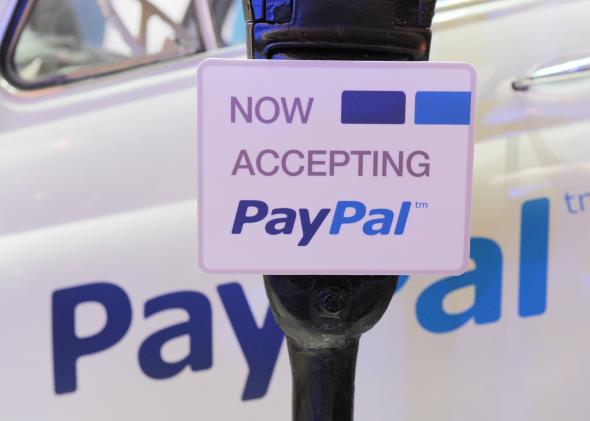PayPal is probably best known for helping customers use their bank accounts, credit cards, or debit cards in online transactions. But as a big financial payments company, PayPal also offers lots of other products. One of them is PayPal Credit, a “simple, flexible credit line” from Comenity Capital Bank that can be built into your basic PayPal account. The “cool thing” about PayPal Credit, PayPal explains online, is that if you connect it to your main PayPal account, you’ll then “see it as a payment option when you checkout.”
The company apparently got a little carried away with its cool factor, because the Consumer Financial Protection Bureau is alleging that it signed up some customers for PayPal Credit without asking their permission and tricked them into using it by default. “In many instances, Defendant automatically set or preselect the default payment method for all purchases made through a consumer’s PayPal Wallet to PayPal Credit,” the CFPB writes in a complaint filled Tuesday with the U.S. District Court for the District of Maryland. “In other instances, consumers were not able to select another payment method. For example, some consumers affirmatively selected another payment method after realizing that PayPal Credit was set as the payment method for a transaction, only to have the payment method switched back to PayPal Credit during the checkout process.”
Needless to say, the CFPB is not amused by these antics and has slapped PayPal with a $25 million penalty, which the company has agreed to pay. The first $15 million will go to consumers as refunds, with PayPal also ponying up a $10 million fine. “PayPal Credit takes consumer protection very seriously,” Amanda Christine Miller, a PayPal spokeswoman, said in an emailed statement. “We continually improve our products and enhance our communications to ensure a superior customer experience.”
PayPal Credit launched in 2008 as “Bill Me Later,” a program advertised as letting customers shop now and pay after the fact. Some of these promotions promised to give new sign-ups small amounts of money back on a purchase or no interest for the first several months; the CFPB says that in “many instances” PayPal didn’t honor these offers. The CFPB also alleges that PayPal Credit often failed to process payments in a timely manner or lost payment checks, leading to late fees and interest charges for consumers. On top of that, the CFPB claims that even when PayPal’s own systems were down, such that users couldn’t make payments, it would hit them with penalties. And of course, there were also the people who didn’t know they’d enrolled in PayPal Credit until they were officially welcomed to the service by debt-collection calls for late payments, late fees, and interest.
According to a PayPal employee, the CFPB investigation focused on claims from a very small number of PayPal Credit users—just 0.01 percent. That might help explain why PayPal is getting off with a relatively light penalty in this case, especially compared with the $727 million the CFPB demanded from Bank of America over deceptive marketing and billing practices in April 2014. Still, PayPal Credit doesn’t come off looking too good in this latest dispute—or too cool, either.
